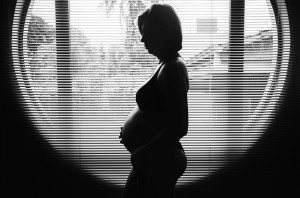
I guess I’d better say something about Arizona’s Supreme Court ruling, upholding the 1864 abortion ban.
As always, I don’t want to talk about abortion, but as always, abortion is in the news. I’m that Patheos blogger who’s been calling out the hypocrisy and abuse in the pro-life movement for eight years now. I would like to write another poetic piece about the hikes I’ve been taking lately, and a funny one about the bridge construction project that nearly spoiled my day. I’m going to start writing those next. But briefly, I just want to draw your attention to this article by Heather Cox Richardson, examining the history of that 1864 abortion ban that was just upheld by the Arizona Supreme Court.
In case you’re not familiar, Richardson is a professor of American history. She talks about the code from which the law comes:
“The laws for Arizona Territory, chaotic and still at war in 1864, appear to reflect the need to rein in a lawless population of men.
The 1864 Arizona criminal code talks about “miscarriage” in the context of other male misbehavior. It focuses at great length on dueling, for example—making illegal not only the act of dueling (punishable by three years in jail) but also having anything to do with a duel. And then, in the section that became the law now resurrected in Arizona, the law takes on the issue of poisoning.
In that context, the context of punishing those who secretly administer poison to kill someone, it says that anyone who uses poison or instruments “with the intention to procure the miscarriage of any woman then being with child” would face two to five years in jail, “Provided, that no physician shall be affected by the last clause of this section, who in the discharge of his professional duties deems it necessary to produce the miscarriage of any woman in order to save her life.”
The next section warns against cutting out tongues or eyes, slitting noses or lips, or “rendering…useless” someone’s arm or leg.”
She goes on to mention that in those days, doctors wouldn’t ordinarily have very much to do with obstetric care. That was something women handled among themselves. The law causing all this clamor wasn’t a law telling women what to do, it was a law protecting women from abusive men. It wasn’t about “the nuclear family” or “the sanctity of human life” or combatting feminism or whatever the pro-life movement has become today.
I remember, as a zealous child and teenager with my strict Catholic upbringing, believing that the pro-life movement was all about protecting the helpless.
I remember even believing the line that we are all about helping women. That we were the real champions of women, and pro-choice people only said they were pro-woman.
I have learned so much that I wish I didn’t know, since then.
Meanwhile, all the politicians the pro-life movement espoused are clamoring to distance themselves. Donald Trump keeps ranting about state’s rights. That loon Kari Lake is claiming she didn’t say what she said on camera in an interview not too long ago. They never actually cared about unborn babies, as everyone knows. The movement sold their souls to politicians who were happy to play them like fiddles, and now they’re all turning on each other like the hypocrites in the bottle at the end of The Screwtape Letters.
I’m just so sad.
I should probably be gloating, because I warned everyone that this type of chaos is all we’d get. But I’m sad.
That’s all.
Mary Pezzulo is the author of Meditations on the Way of the Cross, The Sorrows and Joys of Mary, and Stumbling into Grace: How We Meet God in Tiny Works of Mercy.













